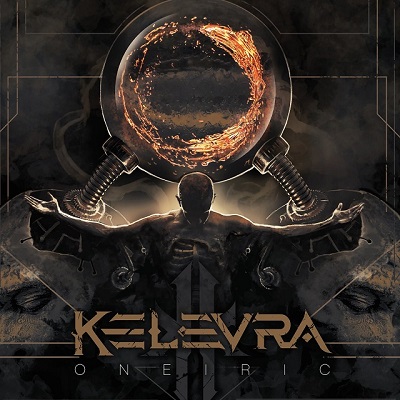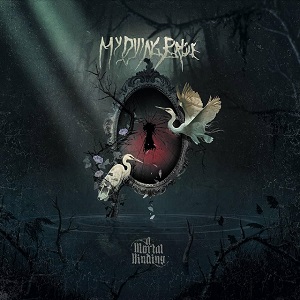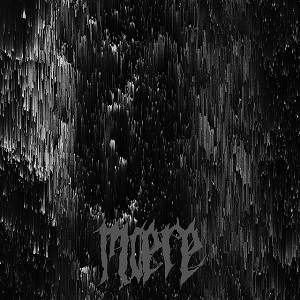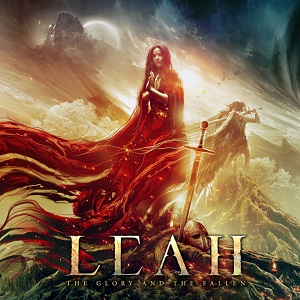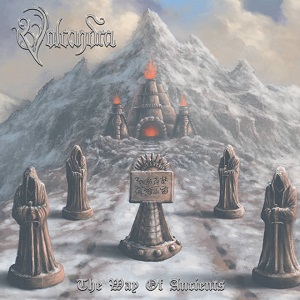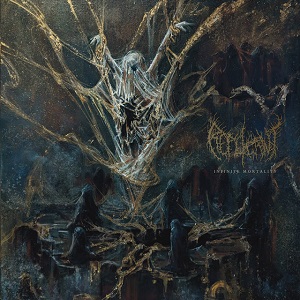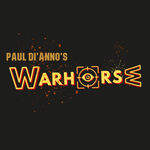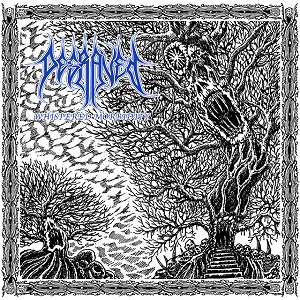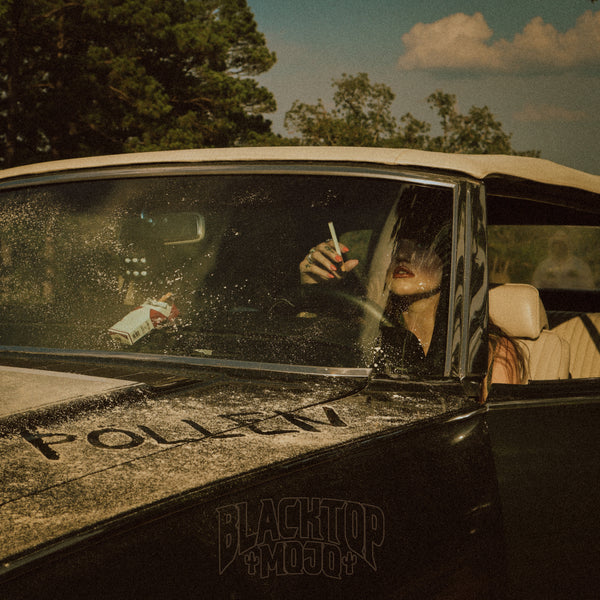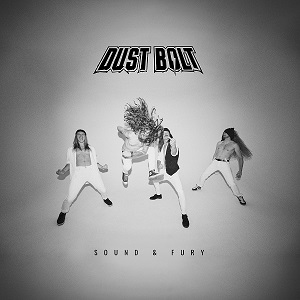Former JUDAS PRIEST Guitarist K.K. DOWNING – "I Paid The Price But I Felt I Had To Set The Record Straight Through My Book"
September 25, 2018, 5 years ago

There’s much excitement at the imminent release of K.K. Downing’s new autobiography—co-written with Mark Eglinton, who does a great job of capturing Ken’s voice—entitled Heavy Duty: Days and Nights in Judas Priest. We can tell you at BraveWords Central that it’s a passion-filled tale, especially heartstrings-tugging in the early goings, when K.K. recounts his grinding and bleak childhood in grimy Birmingham. A second heavy duty impression is left through his accounting of relations with Glenn Tipton, and Downing’s ultimate split with the band.
“I’d been approached quite a lot of times, for different writers, and I’m never really felt the inclination to want to document anything,” begins K.K., the first from the band to the table with a tome, much to the chagrin of management. “And then just suddenly one day, last year the guys running my website said I’ve been approached and I thought maybe now is the time to do it. I didn’t really know anything at all about the writer except the guy said that Mark had just done something with Rex Brown from Pantera so there’s some metal credentials there.”
Indeed there is, plus Mark’s a pro. As alluded to, he smartly steps out of the way and let’s K.K.’s charm shine through.
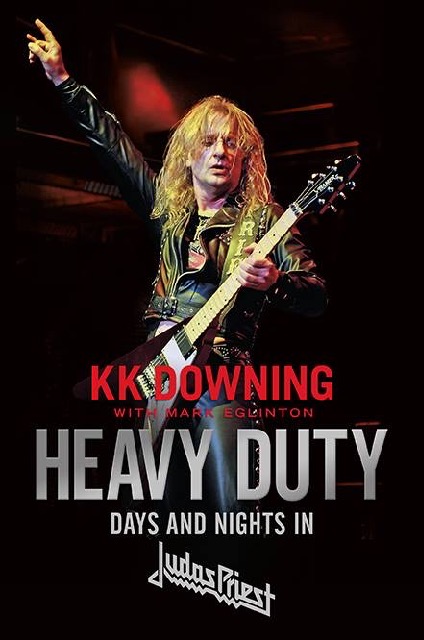
“I didn’t really know too much how it all worked and I’ve got to say I’m not a book reader,” reflects Downing. “I really don’t read books at all of any type. You know, if I’ve ever had any spare time I picked up the guitar and got to work. I was always happy to try to get better as a musician and practice and stuff, and continue to learn Spanish, which I still do today. And I still golf, so I’ve never had time for books. But the main parts of my interest in doing it was that I felt that I had kind of a life story, from a point of view of… well, I wouldn’t say an unorthodox upbringing, but I think there were a lot of people out there that had a hard time.”
Continues Ken on this tough childhood, “I think that my upbringing and how things unraveled for me and went from a proper shit situation—to be fair—into something that turned out good in the end… you know, I thought that the story there was worth telling. I wanted to kind of document that; I always felt that I wanted to get that out of my system. Because all of the lighter stuff, really, the stuff with the band and all of the antics that we go up to, that was all pretty boring to me because I’ve gone over that many times in interviews. It was more the things that I hadn’t gone into in any interviews that interested me most, really. That was what spurred me on to do it.”
“Obviously I’m very aware that the world is a very big place, Martin,” continues Downing. “I know lots of people have had a hard time out there, especially as kids growing up. You know, I’m not the only one, but I just wanted to kind of reach out to people that know me and people that read the book, and say that even people like myself went through some proper crap just like you did. And to make that connection with those people was in my mind, really.”
Unlucky in life as a pup in a broken family situation, K.K. was saved by… Jimi. These portions of the book are also pure gold. Ken in fact witnessed Hendrix a few times as an impressionable teen (even stole a pedal!), and those memories are well documented in Heavy Duty.
“I always say I was born probably in the perfect year, give or take a year or two, 1951,” explains Downing. “So to actually have witnessed… not only witnessed but to be a part of music evolution as we know today… I know you can relate to a lot of what I’m saying as well in the fact that we’re so fortunate. We’ll probably never ever see these times ever again. I’m sure of it, Martin—everything’s changing and we’ll probably never get it back. Relating to blues music, which was the start of it all for the working classes when I was a kid growing up, that was the very, very first thing that happened to me, with the black blues artists that would come over to England and play for us together with, you know, the white blues bands that were influenced by those people, from John Mayall to Taste to Cream. Everybody had a touch of the blues about them. But as much as I liked the blues and related to it and I loved all the bands I just mentioned, as a young kid I thought there was something more out there. And obviously the great Hendrix really anointed that when he came on board. I was listening to bands like The Pretty Things, obviously very early Stones, Barry McGuire, ‘Eve of Destruction,’ things that were a bit darker, anything that was not pretty and nice, anything that was as far away from pop as could possibly be, but not specifically blues.”

And then there was Jimi. “Yes, it was all about the incredible guitar wizardry and techniques for me, really,” says K.K. “That’s what really, really lit the fuse for me. When I saw Hendrix, he sounded heavy as fuck. First time, he opened with 'Foxy Lady,' and then he went into 'Purple Haze' and I’m thinking this is seriously, seriously moving stuff.”
As alluded to, a theme an’ stream throughout the book is Ken’s relationship with his co-axe maniac Glenn Tipton. Apparently, things were not particularly copacetic.
Explains K.K, “I think a lot of the soloing, probably I didn’t realize at the time, we would sit down and kind of divvy up the solos and it sounded like I would have ten solos and Glenn would have ten, but Glenn’s would be ten times longer than my solos, you know (laughs). And the penny eventually dropped and I wasn’t happy with that. There was just discontentment. You know how it works in relationships—a pecking order formulates. And egos formulate and it goes on. And so you get some guys that have more of a placid kind of laid-back nature, and you’ll be trod on a bit more than others. It’s sad when that happens, because lots of us are victims of our own kind of gracious personalities in a way, really, where we are more flexible. Where some people, if they don’t get what they want, they throw the toys out of the pram and nothing gets done.”
“You have to deal with people like that,” continues Downing. “You’re afraid to upset the apple cart, but there’s no point because you want to go forward—it’s either that or stay still. Go forward with somebody else’s ideas and methods or you don’t go anywhere at all. And I hate that. It wasn’t horrendous but it was bad enough. I stuck at it for 40 years. I was totally dedicated to Judas Priest. I never even thought about solo albums and I could have done that; I was approached many times. A lot of people don’t know—and I didn’t put it in the book—but Rob had released two albums and did his own tour in the exact 12 months before I left. He released two studio albums, Winter Songs and another one, and did his own tour. And you know, the main event inevitably suffers. I will say this now. I was absolutely the true absolute die-hard Judas Priest… if I had any song ideas that were worth anything—and they weren’t worth anything unless they were credible enough to go on a Judas Priest record—if you’ve got those credible ideas, then they should go on the record. That’s what should happen, you know? So you can only take so much.”
We talk about Dave Holland, we talk about Nostradamus, and K.K. very graciously says some good things about Decade of Domination, my own Priest book out the week we talked, but we close on a note that seems like resignation, even reconciliation…
“If you’ve got five guys who are going to spend a lifetime together, you have to have a different niche. You can’t all be like the one person. And you can’t all be like the other person. It’s like husband and wife, but usually she wears the trousers. If both of them wear the trousers it doesn’t go too far. So unfortunately it has to be like that. I paid the price but I felt I had to speak and set the record straight through my book. And I have to say, myself and Mark, we spent a lot of time talking about things…”
It seems, based on the intimate psychological exercise that the book represents, that those conversations were indeed cathartic. Bottom line, K.K. and Eglinton have put together an effortlessly accessible and swiftly-moving tale that will have you reassessing all you thought you knew about Priest. As AC/DC would say, “It’s a long way to the top if you wanna rock ‘’n’ roll,” and Heavy Duty helps underscore those humble sentiments with an English charm that is rare amongst rock autobiographies. You won’t come away down in the dumps about Priest, but you’ll emerge at the end of the story affected by the humanity of this band blessed, and from 1976 to 1979, unarguably the best.

